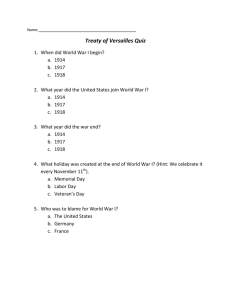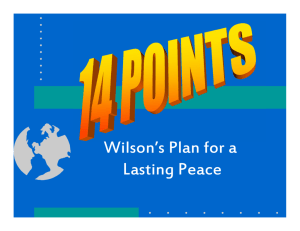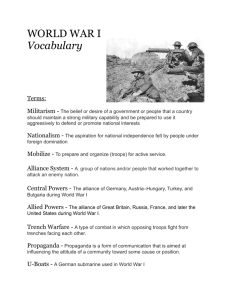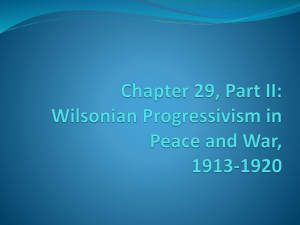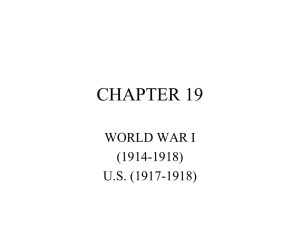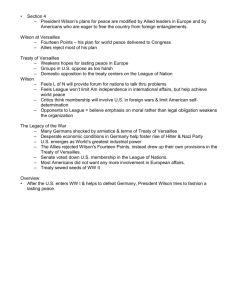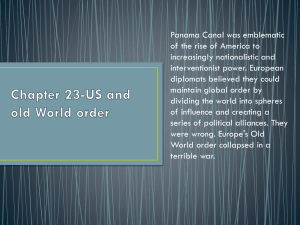War Industries Board - Nutley Public School District
advertisement
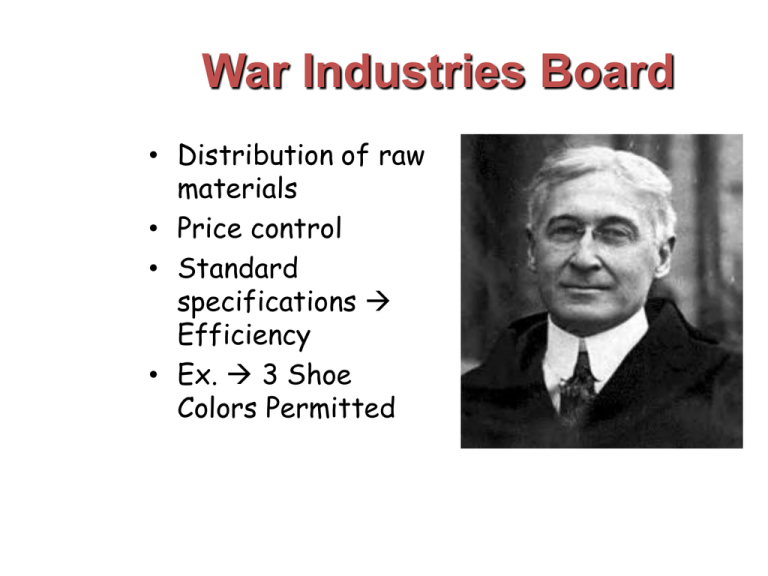
War Industries Board • Distribution of raw materials • Price control • Standard specifications Efficiency • Ex. 3 Shoe Colors Permitted Food Administration • Herbert Hoover • Modern Cultivation instruction • Efficiency in meal prep • “Food will win the war” War Labor Board • Environment of gov’t/business collaboration • Many anti-trust laws suspended • Board pushes for: – 8-hour work day – Right to unionize • War years see rise in wages, improvement of conditions, and surge in union membership. Results of This New Organization of the Economy? 1. Unemployment virtually disappeared. 2. Expansion of “big government.” 3. Excessive govt. regulations in eco. 4. Some gross mismanagement overlapping jurisdictions. 5. Close cooperation between public and private sectors. 6. Unprecedented opportunities for disadvantaged groups. Government Excess & Threats to the Civil Liberties of Americans 1. Espionage Act – 1917 2. Sedition Act – 1918 1917 – Selective Service Act 24,000,000 men registered for the draft by the end of 1918. 4,800,000 men served in WW1 (2,000,000 saw active combat). 400,000 African-Americans served in segregated units. 15,000 Native-Americans served as scouts, messengers, and snipers in non-segregated units. Wilson’s 14 Points • 1 – 5: – Solution to problems that caused the war such as – SECRET TREATIES, TARIFFS, MILITARISM, & COLONIAL CONTROL. • 6 – 13: – Dealt with boundary changes in Europe • 14: – Called for creation of the League of Nations. Treaty’s Results • Germany Reparations. • War-Guilt Clause • New countries formed: – Ottoman Empire Broken up into Iraq, Syria, Lebanon & Palestine – Austria & Hungary Separate – Finnish Independence from Russia – Formation of Yugoslavia & Czechoslovakia – Poland, Lithuania, Latvia, & Estonia Independent nations. • Fragile Truce Treaty’s Weaknesses • Humiliation of Germany • Russia’s Post-revolutionary (Bolshevik) government feels ignored. • Treaty fails to address colonies, except stripping Germany of hers. • French refuse to grant Independence to colonies of Indochina Rebel leader Ho Chi Minh. • Continued lack of European stability. • Self-Determination? U.S. Opposition to Treaty • Congressmen vs. League of Nations America forced to set foreign policy according to other nations. • Wilson’s delegation included NO Senators • Wilson’s 8000 mile speaking tour (35 speeches in 22 days) Stroke • Treaty never ratified; Separate treaty with Germany.

